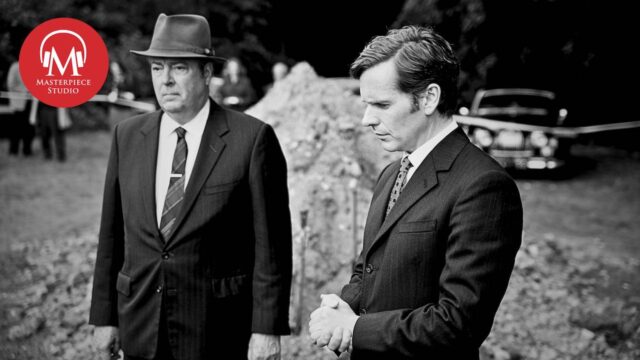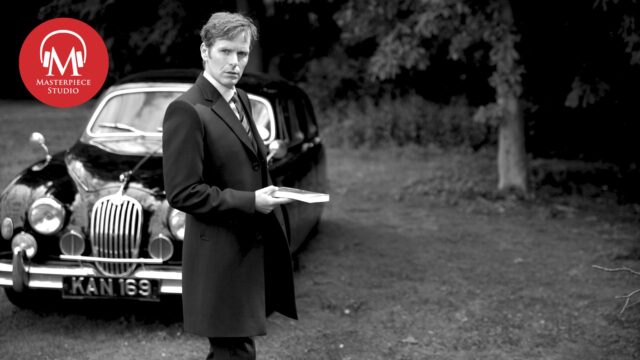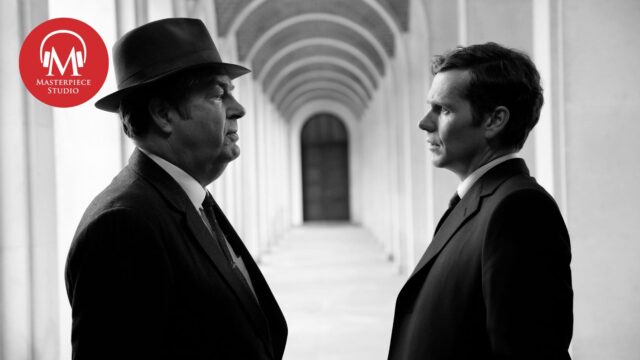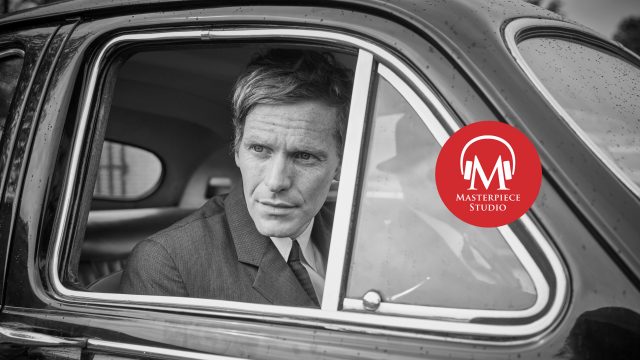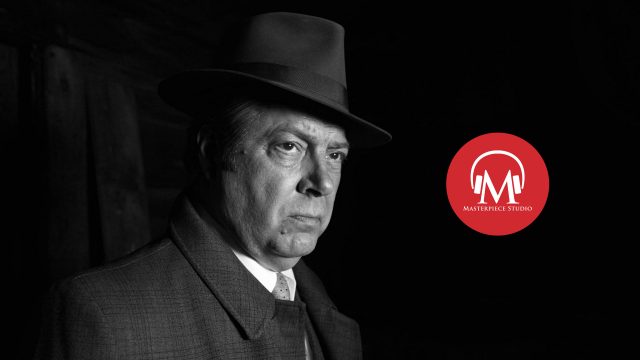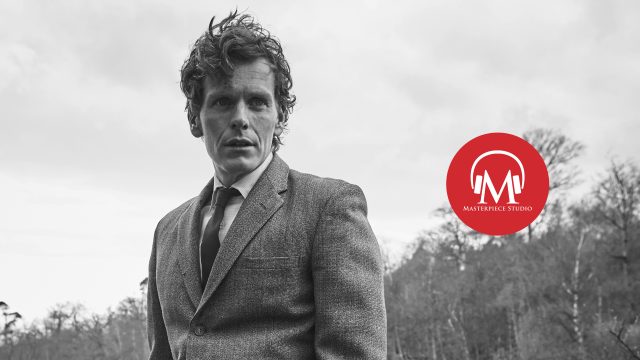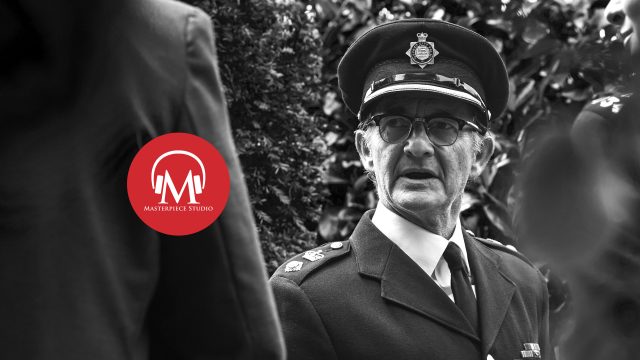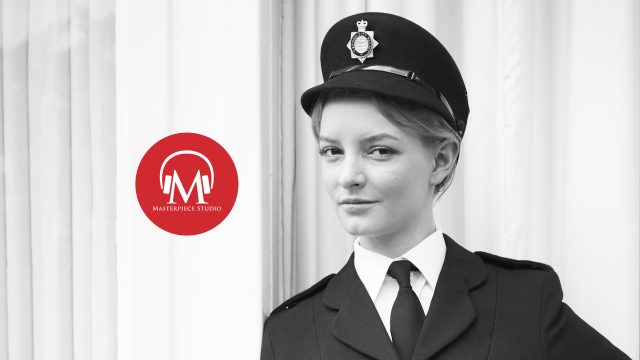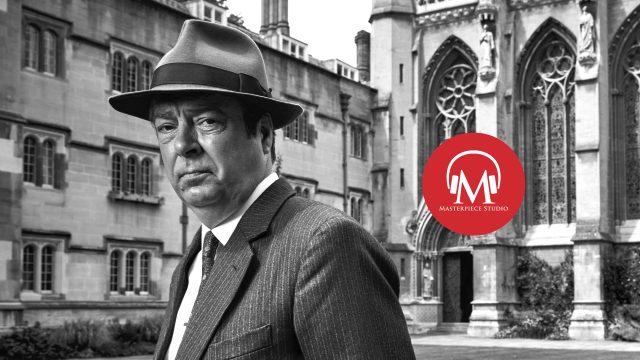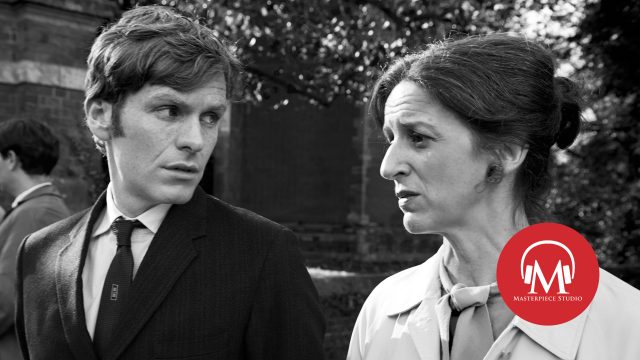In this sixth season of Endeavour, series lead Shaun Evans slips behind the camera for a change in a dramatic second episode. It’s a move that Evans found easy — and one he hopes to have the opportunity to continue elsewhere in his career. He explains how he did it — and how his Endeavour Morse continues to crack complicated cases — in our new interview.
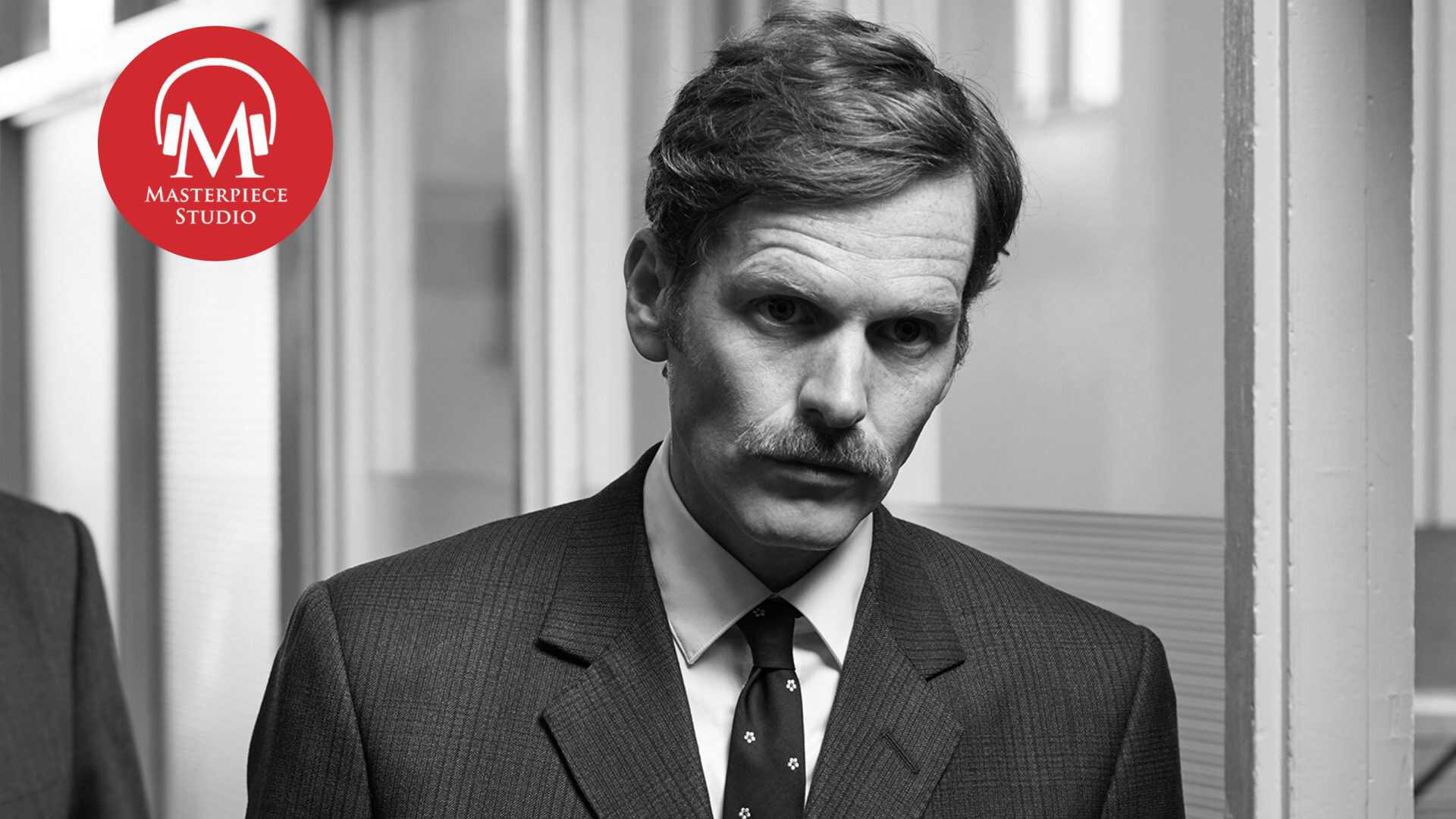

Shaun Evans Remains The Vital Heart Of Endeavour Morse’s Oxford
Released 33:08
Related to: Endeavour, Season 6
Download and subscribe on: iTunes | Spotify| RadioPublic
Transcript
Jace Lacob: I’m Jace Lacob, and you’re listening to MASTERPIECE Studio.
In the swinging sixties of Endeavour’s Oxfordshire, it’s more than just the music that’s swinging. As the Apollo 11 moon landing captures the world’s attention, a rollicking key party of well-heeled academics ends, of course, with a pair of murders.
CLIP
Endeavour: Then what warrants the attendance of CID and an officer of senior rank at a common or garden RTA?
Bright: The driver’s a Professor Adam Drake. The moon man?
Endeavour: Any other vehicles involved?
Bright: Not according to Accident Investigation.
Endeavour: There’s no skid marks.
Bright: Asleep at the wheel possibly? Alcohol, perhaps. And speed.
Jace: A mustachioed Endeavour Morse is on the case, but the intergalactic pieces seem to only loosely fit together by the case’s end.
CLIP
Thursday: He knows what he’s doing.
Box: Do you, though?
Thursday: That’s that, then?
Endeavour: No.
Jace: Shaun Evans slipped behind the camera for this episode midway through the sixth season of Endeavour, playing both the fictional detective and the real-life director for a change. It’s an opportunity he found thrilling.
Shaun Evans: You know where everyone needs to be in order to service the story, so then it’s kind of thrilling to have the opportunity to decide where the camera goes and to tell the story from another point of view. But it just feels like an extension.
Jace: Evans joins us to discuss direction, detection, and where his Endeavour Morse is headed in another dizzy season of Oxford mysteries, moon landings, and murders.
Jace: And we are joined this week by Endeavour star Shaun Evans. Welcome.
Shaun: Thank you very much. Thank you for having me. I appreciate it.
Jace: Season six of Endeavour finds our characters in very different circumstances after Cowley Nick is shut down. Morse has been shipped shipped off to Woodstock. Thursday, unable to retire, has been demoted. Trewlove is gone. Bright’s over at traffic. Is this a season of change, ultimately?
Shaun: Yes. Yeah, without a doubt. I think when you get to this point in a long running story, if you’re lucky enough to get to this point, you have to keep pulling the rug from under everybody. And so it’s good if you have the opportunity to put them all in situations which you would never ever imagine them in, you know? As difficult as possible, both professionally and personally, as well, to really make them suffer in a way. I think it’s most interesting.
Jace: The death of George Fancy remained unsolved at the end of the last season which to me seemed a clearly intentional cliffhanger. How much of a ghostly presence does it play here? Is solving his murder a unifying thread for this season?
Shaun: Yeah it certainly is. That’s a good question, it certainly is. It sort of overarches the whole series this time, as you said rightly. We’re all thrown to the four winds, and the one thing that brings us back together from all of our separate little entities is this question of who killed Fancy, and getting to the bottom of that. And how it’s affected all of us as well, I suppose. So the ghost of that is certainly over the whole thing. How Thursday feels about being in control of the team at the time of one of his men dying. How Endeavour feels about it, having been something of a mentor to him. And been a bit brutal to him, I think as well. There’s a great line at the end of him at the end of one of them where I was like, ‘I could have been kinder,’ and Thursday then says, ‘Well, who couldn’t?’ But that idea is kind of at the very heart of you have an argument with a person that you are in a professional relationship with, then they die. So you have no chance to make peace, and I think that weighs pretty heavily, certainly, on Endeavour, but in fact guilt is there throughout, I would say, in this one.
Jace: Now it’s 1969. Morse is now sporting a rather era-appropriate mustache.
Shaun: That’s right.
Jace: Did you grow it yourself?
Shaun: Yeah of course, mine in for a penny out for a pound.
Jace: My favorite headline on the subject is courtesy of the Oxford Mail quote, ‘Endeavor’s Shaun Evans spotted with mustache. But is it real?’
Shaun: Is that what it said?
Jace: I mean how do you react to such scrutiny?
Shaun: You know, what? The first I’ve heard of that. I pay little or no attention to it. In fact I pay no attention to it. Two reasons, really, I think. Well firstly, I’m delighted that it gets attention, and long may that continue. However I — personally it makes me a little self-conscious. So I just try and avoid it, you know, so I’m just kind of thinking about the job. And then when the job is done, thinking about my life and having it, and living both of those things and having no exterior shizzle put on it, if you know what I mean. So you’re just free then, and you’re not self-conscious about, you know, people taking your picture or being under scrutiny so I kind of, I really don’t give it a second thought.
Jace: You are clean shaven today.
Shaun: That’s right.
Jace: Did you come to love it or loathe it?
Shaun: You know I didn’t mind, I didn’t think too deeply about it. I was doing a play a couple of years ago. Basically how it comes about is when we finish a season, we have the opportunity to assess whether there is still a story to be told, whether there’s still an audience. And then if we think that both of those things are there, then how to move forward in a way that is progressive, rather than, like to improve upon what you did last time, and to assess as accurately as possible what you could improve upon. So anyways, during this meeting, this cup of tea that we — have me, and the executive producer and the writer, the writer said to me, ‘We when I saw you in that play a couple of years ago you had a ‘tache and I was thinking about this idea of not being able to look at yourself in the mirror and hiding behind something. What do you think about it?’ And I thought it was a great idea. That, coupled with being in uniform at the beginning of this series, I thought yeah, you know, it’s good to just take it to a new place. I mean I know that’s kind of a facile think to say, you know, just a uniform and a ‘tache, but that’s what you have an opportunity with longform stories to do that, and the audience will will go with you as well you know? There’s also a terrific movie by Sidney Lumet starring Sean Connery which I know was a major influence on the first film that we make in this season so so yeah, yeah it’s all good. It’s all good. I had a beard at the time as well, so it wasn’t like a major bowleg like to just shave part of my face.
Jace: Now Morse and Thursday cross paths almost immediately in the first episode.
CLIP
Thursday: A sergeant doesn’t question a Detective Chief Inspector’s fitness to lead an inquiry.
Endeavour: “Robbery? I’ve shit ‘em.’ Wasn’t it?
Thursday: Things change.
Jace: Do you think that Morse has become a painful reminder of what Thursday’s life was before?
Shaun: Maybe? I hadn’t thought about it that way. The way I see it is this character is a seeker of truth, and whilst he hides away to a degree from himself, I think it’s hard to hide away from him. Do you know? So whilst that might be true what you say about Thursday, I think it’s like, when you see someone from your past and they know you, and you’re sort of in denial about things, but they see right to the heart of it. And you might not want to address that. So actually I suppose, yeah we’re saying the same thing. We’re just saying it from different points of view. So yeah, that’s a very accurate description.
Jace: I mean to me there’s a deep sadness to that exchange it’s very clear that Thursday never intends to take Morse up on that offer of a drink. Does it take that spark of curiosity over Ann Kirby’s murder to bring them back into their familiar routine?
Shaun: Yes, I think so but also, I think it’s Thursday not getting any purchase from the rest of the team. And you know you gotta remember that, whilst he’s having these like we said earlier you’re putting the characters in both a professional and a personal humiliation in a way, that Thursday’s still a great cop and wants to get the job done. And he’s found no one in that circle who can do it in the same way that Endeavour can. And so I think it’s two things. I also think they’ve a very close bond. I hesitate to say a father son relationship but there’s definitely an intense bond between the two of them. And Thursday is having a pretty terrible time. And so I think either consciously or subconsciously it’s a reach out for some kind of, you know, companionship in one way or another. You know his wife’s ready to leave him. Things aren’t good.
Jace: Endeavour discovers Clemence’s missing sample case hidden in the church organ loft and brings it to Thursday telling him that he was right.
CLIP
Endeavour: He’d hidden it at St. Christopher’s. So Arthur may have planted the evidence that got him convicted. But you were right. He was guilty.
Thursday: That’s not how they’ll see it upstairs. Or in the papers? You know how it works. If I fitted up Phil Clemence, who else have I fitted up over the years?
Jace: Is this a Pandora’s box of a sort? Would this be the end of Thursday’s career entirely, the destruction of his reputation as a copper?
Shaun: That’s all we’re trying to achieve with it. Yeah, that’s what we’re trying to achieve with it.
Shaun: I mean why does Morse ultimately decide to put the sample case back in its hiding place?
Shaun: To save Thursday, without a doubt. And I think throughout the whole series what we’ve tried to do do throughout this series is, there’s often a moment where there are different kinds of cops right and it’s different kinds of policing. But there’s always a point where Thursday will say will say, ‘Oh here’s your notebook back, like, ‘It’s cool man, no one needs to see it,’ whereas for Endeavour it’s like, well in for a penny in for a pound, there is no gray, it’s black or white, and this is what we do, you know. To be a good cop, to be a good person, we have to be on the right side of things. Which is why I think he finds it difficult to make relationships and make friends. However, in this one, we are coming towards the end of all of these stories, the change is he’s let this person in, and is willing in a way, to compromise himself for them. If that makes sense?
Jace: It does make sense. And how should we read that final moment in this first episode when Morse looks to the altar — the cross and the stained glass window. Is he leaving it in God’s hands, whether the case is found again?
Shaun: Well it’s twofold really it’s like. It’s that. But it’s also a recognition of like the all-seeing eye, you know? And so it’s a an outer manifestation of your inner conscience I suppose. Is this the right thing to do? And it’s just a good visual storytelling tool isn’t it?
Jace: The dynamic between Morse and Joan Thursday has provided a romantic spine to the series thus far. In the first episode of season six we get a bit of a flashback to the end of “Icarus,” with Morse asking if Joan’s offer of a coffee still stands. What happened between these two after Fancy’s death?
Shaun: This is one thing that we disagree about. I personally think that it would be interesting to have these two people begin a relationship and to have a night of passion and then the next day or a couple of weeks later, they’re like, ‘Oh this isn’t what I thought it would be. This isn’t the answer to all of my prayers at all.’ In a way for me, I think that’s way more heartbreaking, that you can’t be happy with anyone, rather than this, will they won’t they, which I personally think has a shelf life. So we have a disagreement about that, but that’s cool. So nothing happens between them. She’s busy, her life moved on. She hasn’t got time for him any more.
Jace: I do think it would be gutting for him to achieve this sort of idealized romance only to for only to find out that it is not working.
Shaun: Right?
Jace: And that there’s something broken within him.
Shaun: Because that speaks about you. Yeah exactly so, that’s my point exactly, right. That’s my point exactly. I think there’s not a fear, and I hesitate to say fear, but I think that for whatever reason, our writer, who I love and is one of my best mates, likes the idea of this will they won’t they. But I think that it speaks more to a real inability to form a lasting romantic relationship if you do that. So I’m very depressed about that. Someone you’ve lusted after for five years and then she’s like, ‘You know it’s…’
Jace: ‘Thanks but no thanks.’
Shaun: Yeah,totally, or even if it’s him it’s like, ‘What’s this here?’
Jace: I love the scene at the fete, where Joan tells him that he doesn’t look like himself. ‘Maybe I’m not me, not anymore,’ he says. ‘Things change,’ echoing Thursday’s earlier remark. Why does Morse want to hurt Joan here? Is it just masculine pride after her rejection?
Shaun: Yes it is as simple as that, I think. Also it’s again pushing away. You know, it’s like you said about Thursday. It’s a pushing away. You start something new, you feel terrible about what happened with Fancy. Things aren’t really working out. I mean, this is an incredibly bright guy who’s constantly being shat upon at work, right? And then has been put back in uniform despite having solved all of these cases the cream is not rising. He’s being put out to pasture, back in uniform, utter humiliation, his life isn’t moving in a way that I think it should be. You kind of, in the same way that Thursday, you kind of wanna push people away from you. ‘Ok I’m gonna start fresh. I don’t want you guys close to me to see how humiliating this is.’ But also you know you’ve got to remember that he said, like twice or even more times, he said, ‘Will you marry me?’ He’s followed her up to a roof thinking there’s gonna be a romantic moment, and she’s like, ‘So I’ve got this friend I’d like you to meet.’ I mean there’s gonna come a point where I think you’re like, ‘This is done.’
Jace: Morse gets transferred from Woodstock to Castlegate though he’s puzzled about who is behind the transfer and why. Particularly as there’s no love lost for him at Division. What is Strange’s end game exactly? And why does he go to ACC Bottoms to make the request? Is he sort of the puppet master for this season, bringing everyone together?
Shaun: Yes, actually Jace, you’re right. I would say that Strange is the puppet master to a degree but it’s only one small part of his journey throughout the whole story because I don’t know if you know the books. Strange is in the books and there’s a very interesting relationship between the two of them in the books, and we’re trying to speak to the beginning of that, as well. Of course, Thursday is not in the books or indeed in the TV series, so we’re attempting to bridge that particular gap on this. Like we said earlier, about pulling the rug from underneath all of the characters, Strange is one who seems to be doing great. He’s had a makeover. He’s got like a really cool suit. He’s looking very smart, things are on the rise for him and he’s part of the…well it’s sort of unspoken, but he’s part of the Freemasons. And whilst he’s a good policeman, he lacks the brilliance of Endeavour, just in solving crime and in his mental capacity, I suppose. Although he’s a much nicer guy and a much friendlier person, which I think is pretty, you know, galling and humiliating to a degree for Endeavor. I think they both acknowledge that, and Strange does have a romantic view of all of the boys back together, and realizes how useful that is for each of them but also for the community as well, and probably understands that the only people who can get to the bottom of Fancy’s death are the Cowley lot, and then also for these girls dying as well, you know. So it’s twofold really, it’s twofold. And also I think just from a purely friendly point of view, he can see that this person that everyone is not doing great, aside from him and if he can help them in whatever way he will, then he will. He’s a great…I love the character of Strange, I think he’s terrific.
Jace: Before this next question, a brief word from our sponsors…
Jace: That brings us to episode two, “Apollo,” which is directed by none other than Shaun Evans. You directed three episodes of Casualty before this. How did this come about exactly?
Shaun: So how did it come about exactly? I like being a part of something. And I like all of the components about how it’s made, especially something like this, so when we first begun the job, all of the lads knew — I mean I’m a writer, I’m a photographer, so like all of the people who make it knew that my interest was greater than walking in, doing my lines and leaving. Which is great for some, I mean not that that’s not legitimate. Just for me personally, I want to feel a sense of ownership on something. Also for something like this, I want to make the most of the opportunity. And so when we would have these story meetings at the beginning of the year, when we’d finish, I would sit in on post-production. You’re having meetings with the network, and I’m kind of, I’m interested that. I was interested in that world. And then it seemed the next step to making, to become a producer. At the same time. I was interested in, not when you finish a job as an actor, not just walking away, but actually having some sense of ownership of a story and a real creative input on a story. You can as an actor, but you can much more as a producer or director. So I began to direct this show for the BBC. I did one year. Then I came back. We did a series of Endeavour in the break. I went and did another two episodes, and it finished. And then it just seemed like the right, next thing to do. So the chaps at ITV said, ‘Look, would you like to come in direct on?’ They knew I had an interest in it. And also I was very grateful and we did what they could to make it work and then we made it work.
Jace: And unlike Casualty where you’re coming in as a director, you are also the star of the show. How challenging is it ultimately to direct yourself and keep this keep this train on the tracks?
Shaun: I do know that part of it isn’t difficult to be honest with you because if you think about it, in order to tell the stories, you have to be precise about where Endeavour is at in each of them. In terms of where he’s up with the case, and where he’s up emotionally because he’s at the beginning and end of each of them, and he’s the spine of it, in a way. So that gives you an overview. And that spirit then just goes into directing it as well. You know where everyone needs to be, in order to service the story, so then it’s kind of thrilling to have the opportunity to decide where the camera goes and to tell the story from another point of view. But it just feels like an extension. So that wasn’t difficult. That was kind of an easy, natural step without any nervousness or without any anxiety, it just felt. Yeah, this is what we, this is what we’ll do next. I suppose the challenging part — I love working, so I didn’t you know, I don’t mind it at all, is that we shot the second one first, and then of course there’s three films to make after that ,with different directors who you’re giving your respect and openness to in order for them to facilitate them making the you know expressing their vision in the way that they can. But then you’re doing all of your edits in post-production over weekend and keeping your head in your story. But whilst also trying to be the spine for everybody else’s story as well, you know? And to be as switched on, and as this is important for this, that’s important for that. So to having different stories in your mind at the same time? That was challenging and the lack of downtime. That said, the driving thing behind it was, an amazing sense of achievement when it’s done, you know is one. And also, what a rare and beautiful opportunity, you know, so like, just quit your bitching and just make the most of it.
Jace: I love the framing of the shot of Morse as he comes into Castlegate with his box and finds it empty. He’s very alone. He’s small. He’s sort of isolated. What were you trying to achieve with that specific shot?
Shaun: Exactly what you’ve just said.
Jace: It’s a good shot.
Shaun: Thank you.
Jace: There’s a noir-like chase sequence involving Fred Thursday assaulted when two men jump out of the shadows at him. There’s also scenes of sort of quiet desperation of him at home with Win.
CLIP
Thursday: Are you going somewhere?
Win: I’m out tonight.
Thursday: Oh, yeah?
Win: Shouldn’t be late.
Thursday: Have you had tea?
Win: Bit of shepherd’s pie.
Thursday: Ooh — smashing.
Win: At work.
Thursday: Oh right.
Win: I thought you could get yourself something from the chip shop.
Thursday: Yeah — Yeah, I’ll probably do that.
Win: Right, then. Don’t wait up.
Jace: What was it like directing Roger Allam in this episode?
Shaun: Incredible, incredible, you know. I’ll take my hat off to him. He’s such a wonderful actor and a dear, dear friend now as well. As indeed are all of the cast now at this point, especially Rog. And we have a very similar way of working, and both of us care deeply about our work but both love having a laugh, and have got a sense of humor. So we don’t take it lightly. Roger is also a producer on the show as well, so we both care deeply about it. And having known Rog now for a few years, I had a sense of what he would require as an actor. I think the best way to work is to create an atmosphere where everyone can do good work. And so if you create an atmosphere of lightness and joy and freedom to be creative, then you’re sort of halfway there. If you’re clear about where the characters are going in the scene then there’s a freedom and the scenes sort of play themselves. If you’ve got actors like we’re lucky enough to have on the show, who come in all of them to a man, with their lines down, with a sense of the scene, with an idea of where they will be coming in and out, of where they’re going, and but again with an openness to somebody having a different idea and to being a part of the whole piece, rather than it just being about them, then it’s a really easy working relationship. Also I think because we have a history, I know their heart is in the right place and they know my heart is in the right place, as well, so it’s very simple in a way, you know? ‘Let’s have a line on, this is where I think people will come in from, should we have a little rehearsal and play with it?’ ‘Yeah, so if nobody’s got a better idea, let’s try that. ‘Sure. Let’s do that instead.’ You know? So it’s kind of it’s an openness, really, I think, and also not making it about you, making it about the story, making it about the scene. So and Roger’s incredible they all were. They all were.
Jace: Now this episode involves multiple murders mistaken identities wife-swapping key parties, new age therapies, but the craziest element had to be…
Shaun: Oxford, baby.
Jace: I mean the craziest out of the crazy to me was Moon Rangers, the Thunderbirds-like space puppet show, which is so weird and retro. What was it like filming these bizarro Thunderbirds-esque sequences?
Shaun: Incredible. I mean I knew nothing about that, like my childhood cartoons were like Thundercats, and so I wasn’t really into supermarionation, is what it’s called, and so I sought the guidance of an expert, who was incredibly helpful. Showed us how they would have used the studio, and how the puppets would have been shot and how they move and how to get the best out of the moment and all. And so we worked incredibly closely with this this guy.
CLIP
Colonel Crater: What did that box of wires and lights say?
Major Renton: X1 says if we can beam our signal off the asteroid, we might be able to find Barbara’s homing beacon.
Colonel Crater: Great Scott! It’s a billion to one- shot, but it might just work!
Shaun: What I love about it, and what I particularly love about this story, is that you’ve got the moon, this epic, macro, I mean you’ve guys going to the moon, so that exists on that one, huge level. Then on the middle level, you’ve got us, the characters interplaying and doing their normal stuff, and then on a micro, you have this, these puppet characters also working on a moon base. There’s something about it, those three things which I just find I don’t know, like kind of intoxicating you know?
Jace: Well no, and the moon, of course signifying change and waxing and waning.
Shaun: Exactly.
Jace: It’s the perfect sort of macro metaphor for this entire season, and this episode particularly.
Shaun: Exactly, exactly. But also, I don’t know, it’s just a fascinating thing, isn’t it, the moon? I’m like, endlessly fascinated by it.
Jace: There’s another beautiful moment in this episode when Morse and Thursday discover the old black Jaguar at the shop, and are told that it’s had its day and will be turned into scrap and spares. How much of this is as a knife to the heart for Thursday?
Shaun: It should be, but I also think it should be…it’s representative, right? That’s what I was trying to achieve. It’s representative. Thursday’s just had this, he’s just been beaten and has been in a way…this is a guy who was in the army, who fought in North Africa and then got beaten by these two guys. And then you’ve got this barely new officer, in this new Nick, saying, ‘You just sit down now,’ you know, it’s like ‘You sit this one out,’ or you know, ‘You’re on light duties.’ He’s being put out to pasture. He’s being told he’s passed his sell by date. And so I think sort of symbolically, you get this Jag, which is not past its sell-by-date just been neglected. Someone’s putting it out to pasture, so it’s to do with that, really. Things well-made.
Jace: I mean even when they’re not past their prime there’s still use to them. They still have utility. Just like Fred Thursday there’s still a lot of good left in him.
Shaun: That’s exactly what I’m trying to say. Yes. Sorry, I wasn’t articulating it, but that’s exactly what I was trying to say. So it’s him, in a way, you know what I mean?
Jace: I mean if anything represents him, I think it is that car, that says so much about him. It was I thought that was a heartbreaking moment.
Shaun: Good. Good.
Jace: The final shot of “Apollo” might just be my favorite. Morse in his car listening to the moon landing on the radio in front of the Radcliffe Camera. The moon overhead. There’s, as you said about loneliness, there’s just this sense of innate, intense loneliness and isolation embedded in the single image. What was the idea for this shot composition?
Shaun: Exactly that, to be honest with you. Going back to that filmmaker I was talking about, Simon Lang. I remember reading an article where he was saying, because he very rarely makes a film, I don’t know if he finds it difficult to get funding. He said, ‘The people who like my movies are the same people who like to look at the moon,’ and I thought, ‘God, that’s interesting!’ And there is a sense, I don’t know if anyone can relate to this, but I frequently look at the moon, and there is a sense of, it’s that weird feeling that you can’t put your finger on of being a part of something, but also being separate from something, because it makes you feel tiny and I suppose that’s what I wanted, really. I think it’s helped enormously by the music, which was not difficult, but it took us a while, it wasn’t difficult, it was kind of easy because Matt’s a brilliant composer, but I wanted everything stripped away so you just have one thing. One note on a piano, which is painful. And it makes you think you know you got the Thursday family at home, doing the thing of course things aren’t great, but they have each other. And then you have this person alone in the car in Oxford, lonelier than the man on the moon. Because that is his, that’s his fate. That’s what I was trying to achieve with it.
Jace: Now, was that shot as scripted? I seem to remember Morse asleep in the back of the police car in at least one draft of Russell’s script for this.
Shaun: Yeah, there was a couple, well, I, you know, I was kind of curious about that. There were a few that he’s in the stationhouse and then is sleeping in his car because he can’t bear being in the station house. Two things really, two reasons why that changed. The time of the landing, it wouldn’t have been likely, he wouldn’t have been asleep at eight o’clock, or whatever, I can’t remember specifically now, so that was problematic. Also to get the shot that I wanted, it would have been tricky to have him, to have me asleep in the back of the car or in the front of the car. Also, I think you’ve gotta, what I didn’t want, again it’s about being clear about what you’re trying to achieve, right? I wanted to achieve exactly what I’ve said and exactly what you’ve picked up on, what I didn’t want is that for it to end, for people to, ‘Why is he asleep in the back of his car? Do you know what I mean? But to be hopefully, like, moved by the moment, you know? So yeah, we spoke about it and decided to make this change.
Jace: I think it’s a good change because it is a momentous moment for mankind. And to see him sort of alone, adrift, not in space, but just as sort of lonely and lost.
Shaun: Yeah.
Jace: I think was very touching.
Shaun: Oh good, I’m glad. Thank you. Also it raises questions as well if he’s listening to that on the radio, he can’t be asleep in the back of the car. If he is asleep in the back of the car, why has he got the radio on? And if neither of those things are true, then where’s that music, where’s that noise coming from? You know? So you have all these logistical questions, like practical questions at all.
Jace: Given the format, given that this is sort of a 90-minute film, has it given you a taste for what it might be like to direct a feature film?
Shaun: Yeah, well, I mean I feel like I just have, really to be honest with you. We had a screening just the day before I left to come out here, where of course, you show it as it is, you know, as a 90-minute film and my friend who I brought with me was like, ‘Yeah, if you just, you’ve just made a feature really. If I saw that in the cinema then I’d be pleased with it you know?’ So yeah, yeah yeah.
Jace: So might the next thing we see from you be a sort of indie film?
Shaun: I would like that to be something that I do. Yeah, it’s difficult isn’t it? It’s tricky. The world is such now that you can achieve things, especially in this field, you know, if you say you wanna do something and you can galvanize people into helping you or inspiring people into helping you, then you can achieve. So yeah, I’m excited. There’s a few ideas for stories that I would like to turn into other feature or into a mini-series or even…So yeah there is. I would like for that to happen. I hate it when you say things and then it doesn’t happen, you know I always feel like if you say it too soon then you let the cat out the bag and then it loses all of its steam. But yeah there’s a couple of books that I’ve read and there’s a couple of things that I would like to turn to.
Jace: Which is a ‘dream it into existence,’ too.
Shaun: Yeah totally, man.
Jace: Oh yeah absolutely. I think this season will bring you to film number twenty-seven.
Shaun: Bring me to my knees. Oh yeah.
Jace: That too. You’re approaching that sort of magical number of 33 which your predecessors achieved in their respective sort of Morse Universe series. Do you see Endeavour running for more than 33 films, or are you approaching sort of the natural end of this story?
Shaun: Well personally, and I, I don’t feel contained by an arbitrary number. So I think when this series is done, we reach a momentous conclusion at the end of four, where he buys the flat that he lives in for the rest of his days. That could be an opportunity for us to call it a day. If that’s 27, then that’s cool. You know, it’s not, I don’t feel like this is again going back to what we said earlier, fortunately we don’t have a contract whereby everyone is obliged to make a certain amount. You can say, ‘Well we’ve done that, is the story still there?’ Is there still a story to tell?’ And so like I said, I want a bit of peace first. And then when I’m finished on this trip, we’ve arrange to have a cup of tea together, to sit down and discuss where the story is, what else we feel like we want to achieve with it. And what else we need to achieve with it. And then we’ll take it from there. We’ll take it from there. That said, like, I realize the blessing of having the opportunity to make six more films, potentially, that you know, to be doing all different things within those as well. So I do appreciate that. But what I don’t want to be is like the last person at the party. You should have left at midnight, you know what I mean? And is still there at three o’clock, going, ‘Wayyyyyy…’
Jace: Shaun Evans, thank you so very much.
Shaun: Thank you very much my friends. Cheers. I appreciate it.
Jace: Coming up next on MASTERPIECE, we start a brand-new season of mystery in another British university village — Grantchester begins July 14 with a special two-hour premiere.
CLIP
Sidney: The silence in this place used to fill me with joy. Now it’s all I hear –
Geordie: Christ. Can you stand up?
Sidney: Can you?
Geordie: I’m already standing up.
Sidney: So you are. Good man.
Jace: Series creator, executive producer, and head writer Daisy Coulam returns to the podcast for a tantalizing preview of a season that sees the departure of the Reverend Sidney Chambers. That’s July 14, everywhere you listen to podcasts.
MASTERPIECE Studio is hosted by me, Jace Lacob and produced by Nick Andersen. Elisheba Ittoop is our editor. Susanne Simpson is our executive producer. The executive producer of MASTERPIECE is Rebecca Eaton.
Endeavour Podcasts 10 More Podcasts
MASTERPIECE Newsletter
Sign up to get the latest news on your favorite dramas and mysteries, as well as exclusive content, video, sweepstakes and more.











